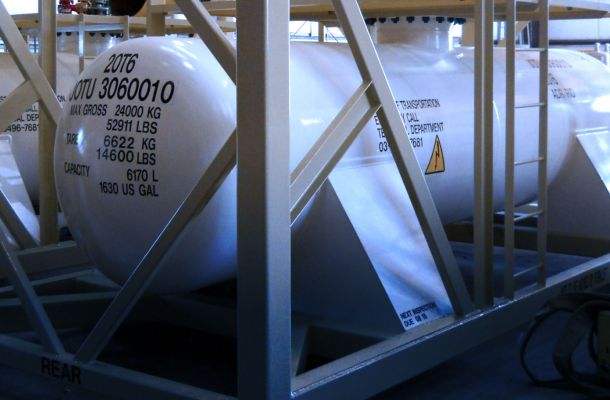SBA Loan FAQs: Your Top Questions about Collateral

First Financial Bank
If you are looking to buy a business and have heard that a Small Business Administration loan (an “SBA loan”) is a great way to support your efforts, you might have some questions about “collateral” for the loan.
It’s not unusual to have questions about loans and the financial language used to describe what happens in the process, especially when it involves loans “guaranteed” by government agencies. As an SBA Preferred Lender, we have significant experience helping people like you acquire, grow, and expand a business. This also means we can provide insights into how to interpret those expressions and terminology you’ve heard about business loans – such as “collateral”.
What is “collateral”?
In general, the Oxford Dictionary defines collateral as:
“something pledged as security for repayment of a loan, to be forfeited in the event of a default.”
In other words, something valuable that the lender can take to help recoup some or all of their losses if the business fails and loan payments are abandoned.
How does the SBA define collateral for their loans?
For the 7(a) loans (the type of SBA loan handled by preferred lenders like First Financial Bank), the SBA requires the lender to use the same rules or guidelines for what kinds of things borrowers can use as collateral as they would use for other types of commercial loans.
How much collateral will I need for an SBA loan?
The amount of collateral required for an SBA 7(a) loan depends on various factors, including the loan amount, the purpose of the loan, your creditworthiness, and the lender’s policies. Generally, the SBA requires lenders to collateralize a loan to the maximum extent possible, which means that lenders will typically require you to pledge collateral to secure the loan.
What types of things can be used for collateral?
Business assets such as real estate, equipment, inventory, accounts receivable, fixtures, and goodwill may potentially be used if you haven’t already borrowed against the value of those assets. The value of the collateral should generally exceed the loan amount, providing the lender with security in case the borrower defaults on the loan. The specific collateral requirements vary depending on the lender’s risk assessment and the borrower’s financial situation.
Additionally, the SBA may require personal guarantees from the business owners, which could involve using personal real estate assets as collateral to secure the loan. Especially if this is your first business, you may have to look at using personal real estate assets as collateral to help bridge the gap. It’s crucial for borrowers to discuss collateral requirements with potential lenders to understand what assets may be required to secure an SBA 7(a) loan. These are not simple choices. We recommend you work closely with your trusted financial advisors and your family to make these decisions.
Does this mean I can use my home as collateral for an SBA loan?
Yes, your home may be able to be used as collateral for a business loan. The amount of equity and who holds the title will impact the decision.
Can a car, truck, or other motor vehicle be used as collateral for a business loan?
Maybe. If the vehicle has been mostly or completely paid off and meets the other requirements for collateral, it may be eligible to be used as collateral.
Can I use life insurance as collateral on a loan?
Yes, your life insurance can be utilized as collateral for an SBA loan, particularly if you, as the business owner, are a key person whose death could impact your company’s ability to repay the loan.
I don’t have life insurance. Will I need some to get a loan?
Life insurance provides an additional layer of security for the lender, ensuring that the loan can be repaid even in the event of unexpected circumstances. Your lender may require you as the business owner to obtain a life insurance policy and assign it to the lender. The insurance proceeds can be used to repay the outstanding loan balance in the event of your death. The amount of life insurance required may vary depending on factors such as the loan amount, your age and health, and the perceived risk associated with the business.

Who determines the value of my assets for collateral?
As you are preparing your financial paperwork for a meeting with an SBA Preferred Lender, you’ll want to know the value of your potential collateral. Ultimately, the lender will have any assets you offer for collateral professionally evaluated, whether those assets are tangible (such as real estate or equipment) or intangibles (such as investment portfolios and goodwill). The value assigned by the professional evaluation is used in the collateral calculation.
How much do I have to have for a down payment for an SBA loan?
Typically, the down payment for an SBA 7(a) loan falls between 10% and 20% of the total loan amount. But this percentage can vary based on a variety of factors, including the lender’s policies, the borrower’s creditworthiness, and the purpose of the loan. Your down payment ensures you have “skin in the game” and demonstrates your commitment to the business while reducing the lender’s risk.
Is it ever possible to negotiate less of a down payment?
Yes, especially when a business is acquiring another business as part of its expansion strategy. Negotiating a deal with as low as a 0% down payment may be possible. Here’s how:
- With an SBA 7(a) Loan Guarantee:
- The Small Business Administration (SBA) offers loan guarantee programs (including the 7(a) program) that can facilitate business acquisitions with minimal down payment requirements.
- With an SBA 7(a) loan guarantee, the SBA provides a partial guarantee to approved lenders (like FFB) to reduce the lender’s risk and enable them to offer more favorable loan terms to borrowers.
- While you may still need to provide some form of down payment, it can be lower than what traditional lenders might require, potentially even approaching 0% in certain cases.
- Build a Strong Negotiation Position with Lenders:
- If the business you are acquiring has valuable assets or a strong cash flow, you may be able to negotiate favorable terms with lenders, including minimal down payment requirements.
- Do you have a strong track record of successful business operations? If so, lenders may be more willing to offer flexible financing options – especially if they perceive the acquisition as low risk.
- Through Seller Financing:
- Seller financing demonstrates their confidence in the business’s future success and can be an attractive option for both parties. It allows you, as the buyer, to acquire the business without having to provide a substantial upfront cash payment. If the seller of the business agrees to finance a portion or all of the purchase price, the down payment can even be as low as 0%. This type of deal can be structured in various ways, such as through a promissory note or installment payments over time. The SBA does have specific guidelines for seller financing and you will want to discuss this with your lender.
In addition to my down payment, does my collateral have to cover 100% of the loan amount?
No. For an SBA loan, if your total loan is greater than $50,000, the SBA helps to mitigate the risk for the preferred lender (the organization actually lending you the money) by guaranteeing up to 75% of the loan amount. You will need to provide collateral to cover the balance.
How do I learn more about collateral for an SBA loan?
If you are considering buying or building a business, talk to an SBA Preferred Lender like us. Over the past four decades, we’ve helped many small business owners navigate the process of buying, building, or expanding their operations. We are happy to chat with you about your plans and can help answer any specific questions you may have.




